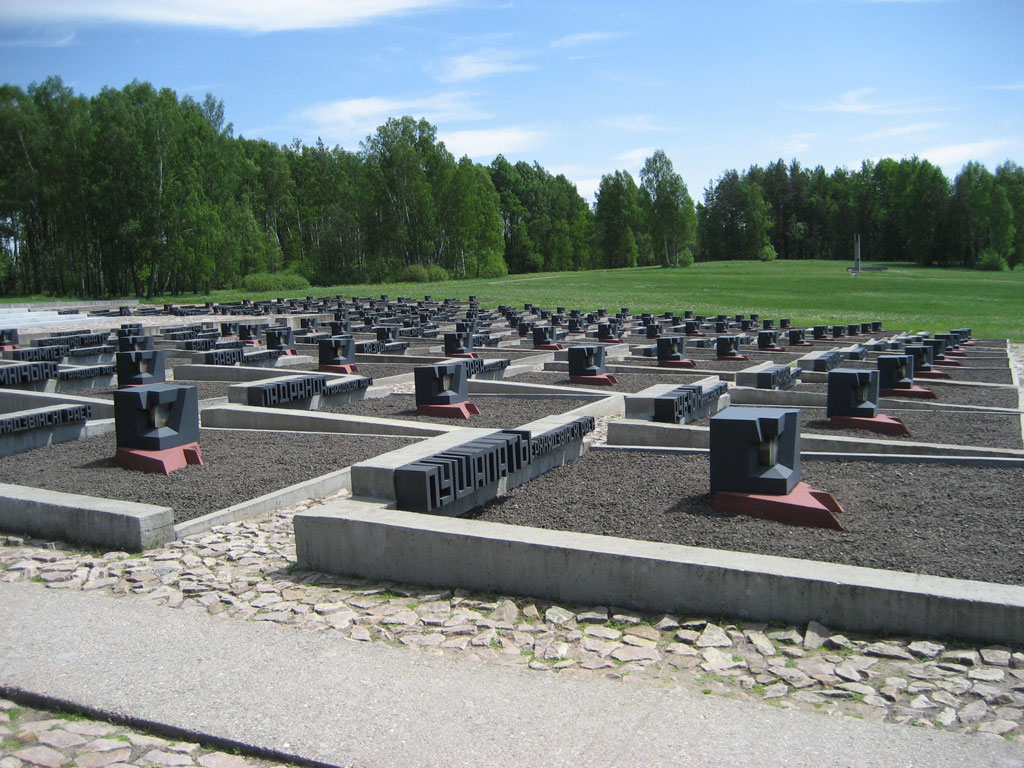There are lots of reasons I ordered up a copy of Jáchym Topol’s The Devil’s Workshop as soon as I heard about it: the book addresses historical memory and World War 2, I seem to have an affinity for Czech absurdism and humor, I’ve visited all the novel’s main settings (Terezín, Prague, Minsk, and Khatyn), and I was eager to read more of Alex Zucker’s work after enjoying his translation of Patrick Ouředník’s Case Closed. Alex translated The Devil’s Workshop from the Czech book known as Chladnou zemí.
The Devil’s Workshop is a sneakily powerful novel
narrated by an unnamed man who came into the world because his father rescued
his mother at the liberation of the concentration
camp in Terezín, also known as Theresienstadt. As an adult, the narrator works
with Lebo, a man who’s everyone’s uncle: Lebo was born in the camp during the
war and makes it his mission to preserve everything related to the camp, save
the town, and make it a bigger attraction. Lebo and the narrator eventually
gather plenty of money and plenty of people in Terezín… but then things fall apart
when they become victims of their own success and are accused (among other
things) of having a commune. With orgies.
Before
too long, the narrator (carrying a thumb drive loaded with contact information for
donors) is escaping the Czech Republic, lured to Belarus by Alex and Maruška, who
are building their own war-related museum:
The museum we’re building in Khatyn, Alex says. It’s going to be the most famous memorial site in the world. The devil had his workshop here in Belarus. The deepest graves are in Belarus. But nobody knows about them. That’s why you’re here!
About
twenty pages later, Alex bemoans the existing “boring, old-style memorial” at Khatyn:
That won’t get the attention of the new Europeans. Look at the Poles and that Katyn of theirs! A step ahead, again! They’re shooting a movie about it! And what about our Khatyn? Nobody’s even heard of it.
 |
| Khatyn, Belarus |
I seem
to read a fair bit about historical memory and World War 2—the far more
optimistic Here Comes Mrs. Kugelman is
another World War 2-related book that comes to mind after a recent reading—but
the combination of dark humor, tragedy, imagination, and twists on the
realities of Belarus give The Devil’s
Workshop a particular relevance that makes me more than willing to forgive
the novel’s slightly uneven pacing and characterization. Finally, I’m happy to report that Alex Zucker
feels fully in control of his material with this book, too: I barely noticed that the
book lacks quotation marks (this is a feat), and he does a beautiful job making
choppy and colloquial language wonderfully readable. That’s very difficult,
particularly in a book like this, with its humor, remnants of war-time
suffering, and strong voices, but he sure makes it look easy.
Disclaimers: I know Alex Zucker through the
American Literary Translators Association. I bought the book.
Up Next: Rose Macaulay’s quirky The Towers of Trebizond, MacDonald
Harris’s comically metaphysical The Carp
Castle, and Niccolo Ammaniti’s gritty As
God Commands.

No comments:
Post a Comment